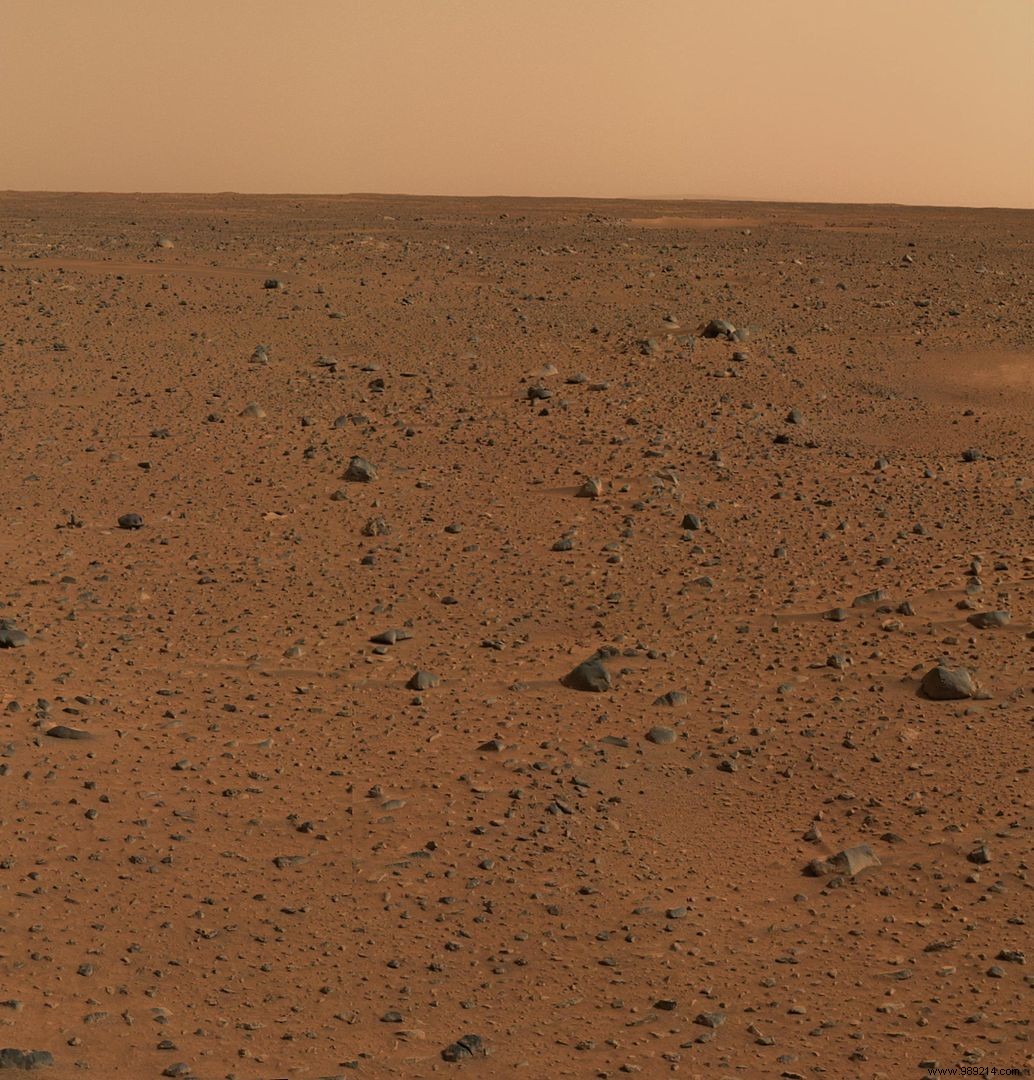In their latest work, US geologists have recreated the soil of the planet Mars in order to work out the possibilities of growing plants there. The ultimate goal is to find a way to make agriculture possible on the red planet.
When we talk about Mars colonization, one of the recurring questions concerns long-term food . Indeed, resupply missions will not be a viable option at a range of approximately 75 million kilometers. These will take too long and cost too much. In February 2020, we mentioned Dutch work that concluded that human urine could fertilize plants on Mars. However, it would still be necessary to be able to grow plants in Martian soil.
In a statement published on October 27, 2020, geologists from Georgia State University (USA) discussed their latest work. The researchers used NASA samples from a decade of exploration with the aim of developing artificial mixtures. For the researchers of the study, it was a question of simulating certain characteristics easily found in the soil of Mars.

Remember that the atmosphere of Mars is very thin and composed of carbon dioxide (CO2) up to 96%. It is also freezing cold, with an average of -63°C. However, the surface of Mars contains the majority of nutrients usually essential to plants . These include nitrogen, potassium and phosphorus.
“Studying the mineral composition or salt content of these mixtures can tell us a lot about their potential fertility. Things like nutrients, salinity, pH are part of what makes land cultivable and understanding where Martian soils fall on that spectrum is key to knowing if they are viable and, if not , if it can be fixed" , said Laura Fackrell, lead author of the study.
Nevertheless, Laura Fackrell believes that the presence of these nutrients is not necessarily accessible to plants. The geologist also mentions the fact that her imitations of the Martian soil are for the moment too dry and have cracks.
The researcher continues to think about solutions to boost Martian agriculture . You should know that the interested party studies in parallel the life of microbes in extreme environments such as the hot springs of Kamchatka (Russia). Laura Fackrell thinks certain bacteria and fungi can support plant crops under stressful conditions like those existing on Mars.
This research could also make it possible to innovate agronomic research on Earth . Indeed, it may one day be possible to grow plants in Earth's extreme environments if this work is successful. Nevertheless, it will be necessary to be patient insofar as this research is only in its infancy.